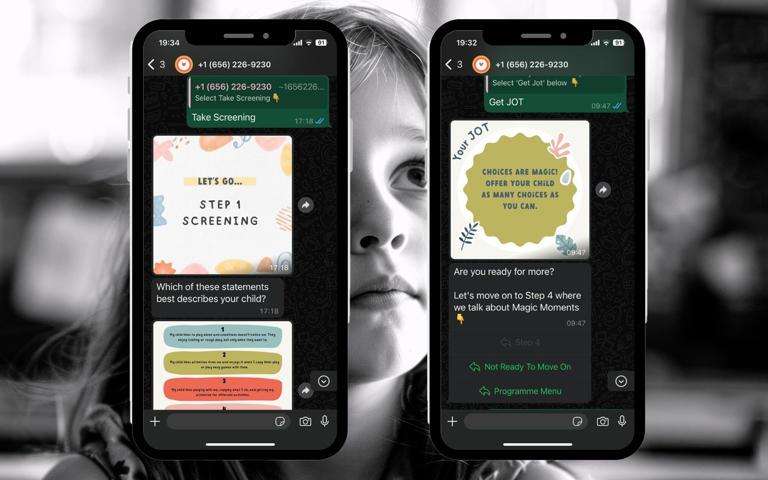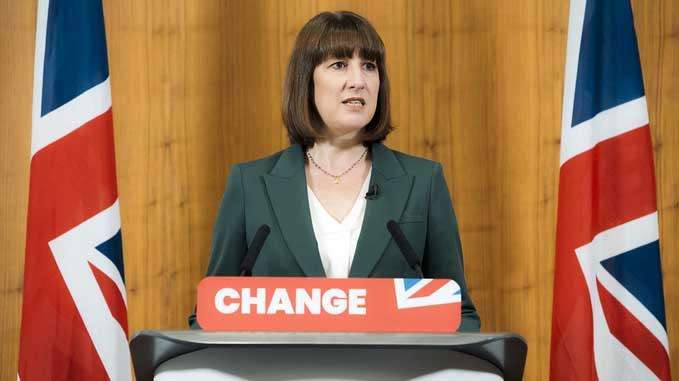The NHS is introducing a WhatsApp-based therapy for the first time to support children born during lockdown who are struggling with speech development.
The *Can-Do* programme, delivered through the free messaging app, provides parents with guidance on improving their child’s communication skills using games, videos, and interactive tools in everyday activities. This marks the first instance of the NHS offering treatment via WhatsApp, raising the possibility of using smartphones for therapy across other physical and mental health conditions in the future.
However, experts caution that the £25,000-a-year initiative is not a "silver bullet." The Royal College of Speech and Language Therapists (RCSLT) acknowledged its potential benefits but emphasized that it cannot replace the specialized expertise and personal care of qualified speech and language therapists.
This initiative comes as the NHS grapples with increasing post-pandemic demand for children’s community services. On Thursday, Health Secretary Wes Streeting unveiled a revised NHS plan that reduced the number of key targets from 32 to 18. While the new strategy included a focus on mental health, there were no specific targets for children’s healthcare, leaving local services to determine their priorities.
The demand for speech therapy has surged among children affected by lockdown measures such as social distancing and mask-wearing, which have hindered communication development. NHS England data indicates that the proportion of children experiencing speech difficulties has doubled from one in ten to one in five, with over 65,000 children currently on waiting lists for speech and language therapy. Nearly 24,000 have been waiting for over 18 weeks, and approximately 5,000 have been on the list for at least a year.
A recent report highlighted that children born in 2020 and now starting school are significantly less prepared compared to previous cohorts. Jane Harris, chief executive of Speech and Language UK, warned that some children struggle even to respond to their own names.
The *Can-Do* programme was designed to help these children overcome the communication barriers imposed by lockdown. It consists of six levels, each with ten stages, and serves as a tool for parents to use while awaiting specialist support or as a complement to existing therapy.
Initially piloted in Bury, the NHS-backed WhatsApp programme has now been adopted by ten services across Greater Manchester’s Integrated Care Board (ICB). With 42 ICBs across England, the service could be expanded further. So far, 7,000 children have benefited from the initiative.
Joanne Jones, a former NHS speech and language specialist with over 20 years of experience, emphasized that the programme shifts parental focus from what their child cannot do to what they are already capable of, promoting gradual progress. She explained that by recognizing and building on existing abilities, children develop confidence and communication skills more effectively.
Originally designed for children under five, the programme can also benefit older children, with parents able to revisit or advance through the materials at their child’s pace.
Jones, a mother of four, highlighted the importance of responding to children as though they are already communicating effectively, rather than pressuring them to produce words. This approach, she noted, helps build their confidence by ensuring they feel understood rather than struggling to express themselves.
The programme typically takes about ten weeks to complete, but parents can progress at their own speed.
Louise Pendry, whose six-year-old son Jack has used the *Can-Do* programme for the past year, said it had transformed her experience after finding traditional NHS care frustrating. She described standard speech therapy as sporadic, with abstract goals that lacked practical application. In contrast, the WhatsApp programme provided a more structured and supportive approach, allowing her to actively participate in her child’s development.
Pendry also criticized conventional NHS models like language pyramids, which categorize communication into rigid levels without considering the nuances of individual progress.
Initially developed as an app, the programme was later adapted into a WhatsApp service by the production company Capture 1 to enhance accessibility. It costs the NHS £10,000 for a trial in a specific area and up to £25,000 for a full-year implementation across a wider region.
Despite long waiting times for in-person therapy, the NHS insists that the programme empowers families to support their children’s progress.
Jane Case, a programme manager at NHS Greater Manchester Integrated Care, acknowledged the unavoidable delays in receiving specialist assessments. She noted that using WhatsApp has revolutionized service delivery, enabling families to begin supporting their child’s speech development as early as possible.
However, concerns remain that the NHS is lowering standards by not ensuring all children receive timely access to therapists.
A spokesperson for the RCSLT stated that while new digital tools, including AI-based support, can be valuable—especially for families facing long waits—they cannot replace the professional expertise, clinical judgment, and personalized care provided by trained speech and language therapists.
Enhance not replace
The Royal College warned that they should be seen as “tools to enhance, not replace, professional care” and called for there to be a proper clinical and cost assessment of any rollout.
Amy Loxley, the lead speech and language advisor at Speech and Language UK, said the charity was calling on the Government and NHS to give parents with children on waiting lists free access to any guidance they need and to bolster the therapist workforce.
She said even with support from apps children would still need to see a specialist, which “cannot be a replacement for specialist support”.
“Despite many of their benefits, apps like these are not a silver bullet to solving a child’s developmental issues,” she said. “Advice needs to be readily available on a much wider scale. We’re calling on the government to make information about typical development, and how to help your child at home, widely available for all families.”
It comes as Dave Robertson, the Labour MP for Lichfield, led a debate in Parliament on Tuesday calling for more investment in speech and language therapy.
He told MPs that data showed “25 per cent of all children when they go to primary school have some form of diagnosed or undiagnosed speech language and communication needs, but if we look at the most deprived areas that rises to 50 per cent”.








.svg)


